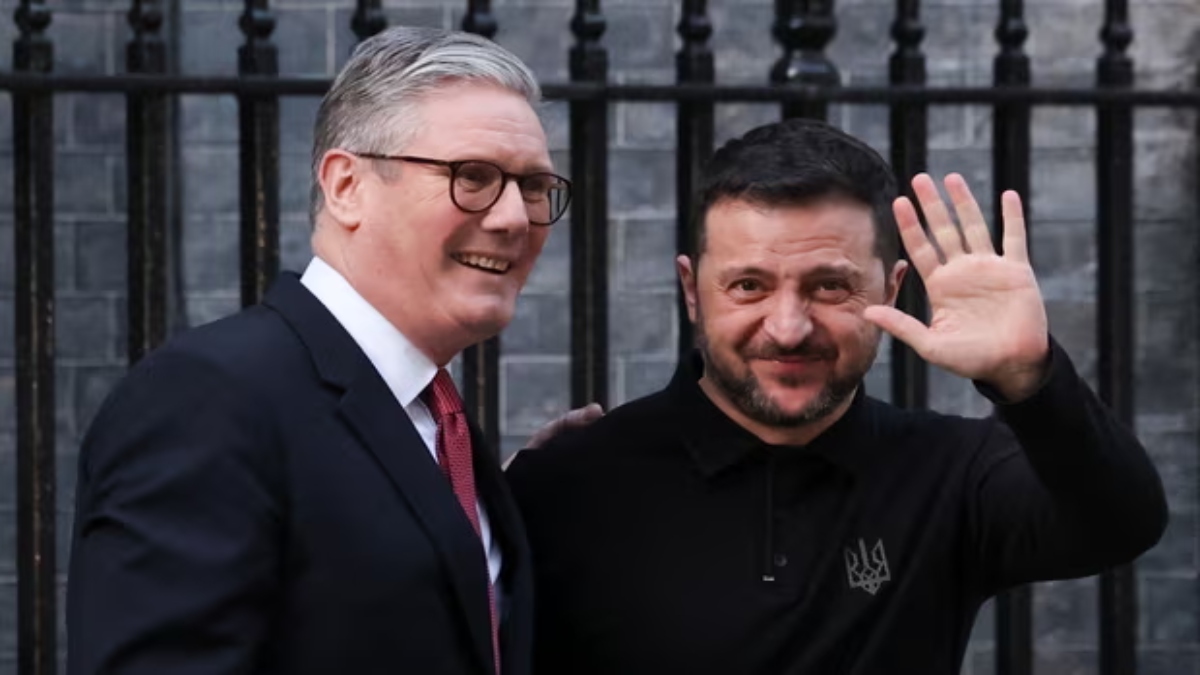Serious talk of a ceasefire deal in the Russia-Ukraine war has been a fairly recent phenomenon. The attention on that front has primarily been on statements made by US President Donald Trump.
But now, there might be another contender in that field. Europe may finally be ready to be on the front foot as Britain, France, and Ukraine have agreed to work on a ceasefire proposal to present to the US.
British Prime Minister Keir Starmer, on Sunday (March 2) confirmed that the plan was in the works ahead of a summit of European leaders to find a path to end the war in Ukraine.
The summit has been overshadowed by Trump’s sharp rebuke of Ukrainian President Volodymyr Zelenskyy at the White House on Friday (February 28). Trump publicly criticised Zelenskyy for being ungrateful for US support in Ukraine’s fight against Russia’s invasion—a rare and highly public dispute between allies.
Starmer, however, said he is focused on diplomatic efforts to restore peace talks and sees the breakdown in discussions as an opportunity to engage Trump, Zelenskyy, and French President Emmanuel Macron rather than escalate tensions.
“We’ve now agreed that the United Kingdom, along with France and possibly one or two others, will work with Ukraine on a plan to stop the fighting, and then we’ll discuss that plan with the United States,” Starmer told the BBC.
Both Starmer and Macron have spoken with Trump since Friday in an attempt to keep European interests at the table amid shifting US policy toward the conflict.
Impact Shorts
More ShortsEuropean leaders rally behind Zelenskyy
Zelenskyy has received strong backing from European leaders following the tense White House meeting, during which Trump’s criticism of the Ukrainian leader was broadcast live.
Starmer embraced Zelenskyy upon his arrival in London on Saturday (March 1) for a private meeting, which took place a day earlier than originally scheduled.
“As you heard from the cheers on the street outside, you have full backing across the United Kingdom,” Starmer told Zelenskyy. “We stand with you, with Ukraine, for as long as it may take.”
European leaders have grown increasingly uneasy as Trump pursues direct peace talks with Russian President Vladimir Putin, who has largely been isolated by Western governments since launching the war began three years ago.
Concerns have deepened over Europe’s diminishing role in the process, particularly after Trump referred to Zelenskyy as a dictator and falsely claimed Ukraine started the war.
Collapse of diplomatic momentum
Recent meetings had offered some hope of renewed diplomatic efforts. Macron described his Oval Office visit as a “turning point,” and Starmer’s subsequent meeting with Trump was seen as another step toward securing European influence in the talks.
While Trump softened his rhetoric toward Ukraine during those meetings, he refused to commit to US security guarantees for Kyiv and insisted that European nations would have to provide peacekeeping troops instead.
However, the fragile diplomatic progress unravelled within hours of Starmer’s return from Washington. Vice President JD Vance escalated tensions by criticising Zelenskyy after the Ukrainian leader challenged Trump’s claims that Putin could be trusted.
The latest developments have further fuelled European anxieties over the future of Western support for Ukraine and the broader direction of US foreign policy under Trump’s leadership.
With inputs from AP


)

)
)
)
)
)
)
)
)



